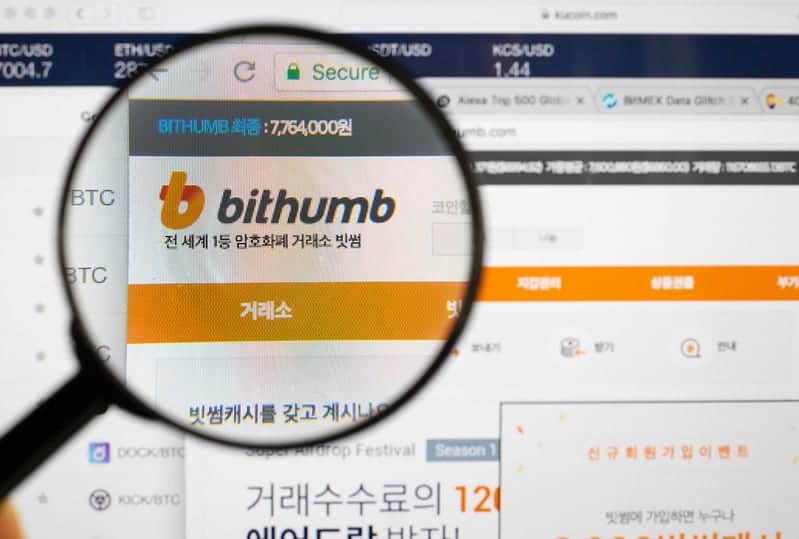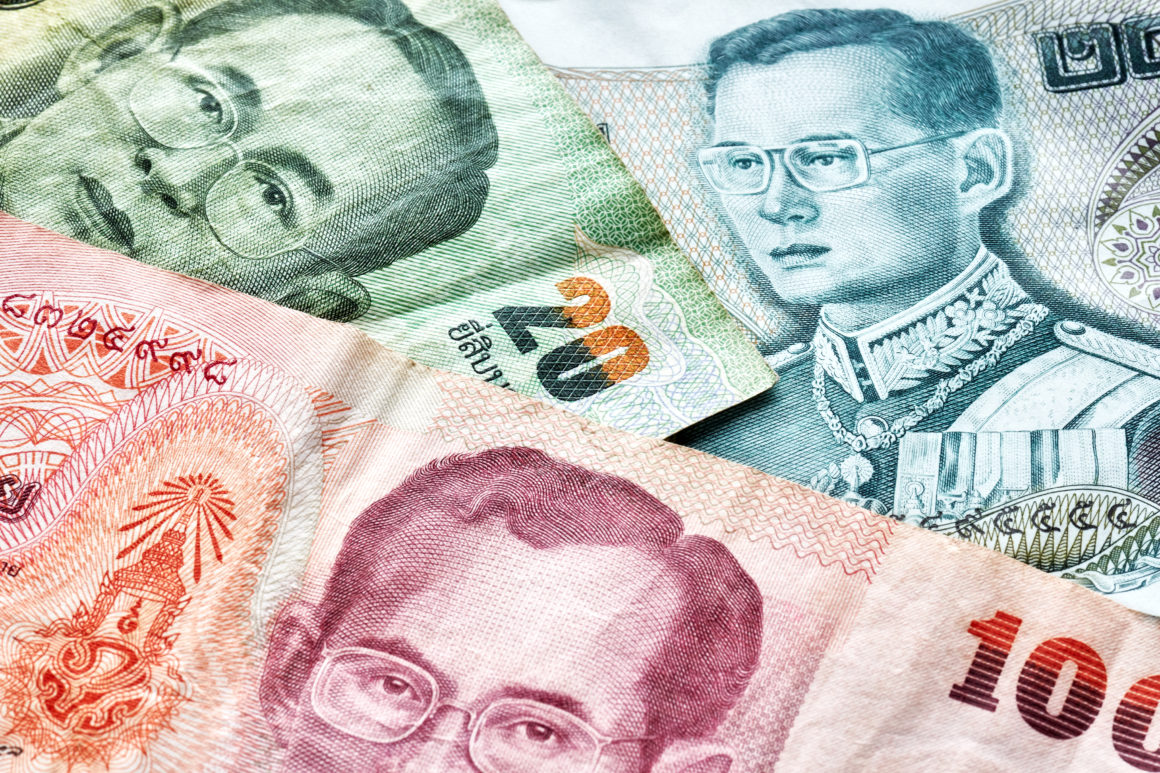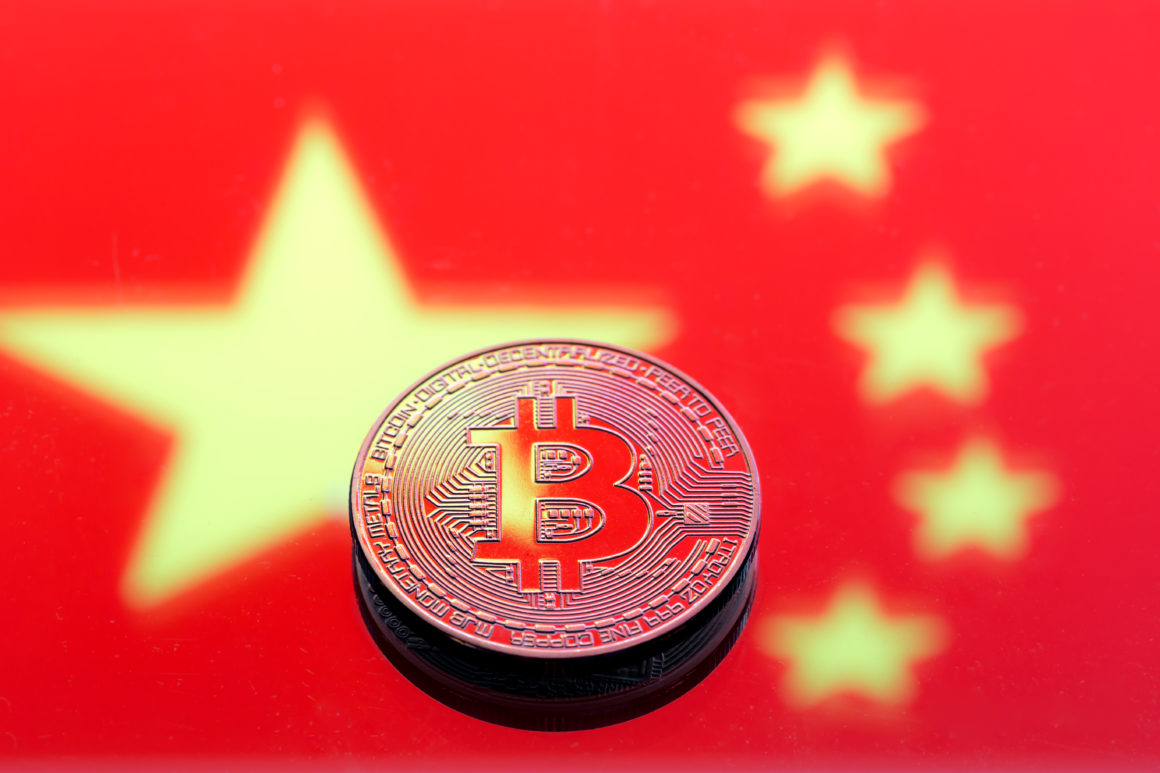In this issue
- Bithumb, OKEx crypto exchanges roiled by South Korea’s new regulations
- Bank of Thailand declares baht-pegged stablecoins to be illegal
- Japan’s SBI Crypto opens mining pool to the public
- Metakovan revealed — and why he is buying up Beeple’s NFT art
- In China, more companies turn to crypto to boost their bottom line
From the Editor’s Desk
Dear Reader,
The times they are a’changin’. Bob Dylan might have very well written his anthem of change not for the 1960s, but for this 21st century age of financial evolution.
As more and more dollars flow into Bitcoin, cryptocurrencies and blockchain firms; a transfer of influence is now starting to happen. Cypherpunks are being displaced by institutional investors. Early holders of Bitcoin can happily sell their once-upon-a-time easily mined crypto, trading it in for that beach house (if they haven’t done so already). In their place come the investment bankers, the institutional dollars, the serious money that could potentially change the trajectory of growth for years to come. With this new liquidity comes compliance, regulations and structure.
On one hand, blockchain, the underlying technology of cryptocurrency, was built to ultimately champion peer-to-peer transactions — disintermediating the middle men (aka banks). In real life, it has become a store of value, a technology that redefines the exchange of value, and allows people using it to arbitrage and speculate on future adoption. But change is messy; change is never linear. And what blockchain has truly created is an opportunity to rethink systems. Whereas blockchain was once just a concept, today it is forcing governments, policymakers, regulators, investors, companies, institutions and agencies to reassess the very foundations of finance. All in a matter of one decade. What will we see in the next decade to come?
The industry’s inflection point is coming. As is the ability of crypto holders to pay for their Tesla using Bitcoin. That day is coming sooner than later.
Until the next time,
Angie Lau,
Founder and Editor-in-Chief
Forkast.News
1. Is South Korea’s regulation roiling crypto exchanges?

By the numbers: Bithumb — over 5,000% increase in Google search volume.
Acquisition rumors about Bithumb, one of South Korea’s largest cryptocurrency exchanges, are intensifying as investment bank Morgan Stanley was reportedly in talks to acquire a stake in the exchange. However, more recent reports in Korean media quote Morgan Stanley representatives denying the acquisition talks, including via a phone call. Local media reports also suggest that global-payment behemoth Visa, South Korean internet giant Naver, and Binance, the world’s largest crypto exchange, are still in the running.
- Bithumb Holdings is the majority shareholder with a 75% stake in Bithumb, while T-Scientific and Vidente hold 8% and 10% of Bithumb shares, respectively. Vidente is also a 34.2% shareholder of Bithumb Holdings.
- OKEx Korea shut down its cryptocurrency exchange business this week in anticipation of the upcoming AML regulations to be enacted March 25.
Forkast.Insights | What does it mean?
The potential sale of Bithumb Holdings is likely an exit strategy for its founders before a new money laundering law comes into effect in South Korea later this week. The exchange faced multiple police crackdowns last year and Lee Jung-hoon, chairman of Bithumb Holdings, is reportedly facing investigations for his involvement in defrauding the investors of the exchange’s native token. Lee is also the majority shareholder.
Under the new law that will take effect March 25, cryptocurrency exchanges in Korea will be required to register for a permit from the Korea Financial Intelligence Unit. Given Bithumb’s recent history of major shareholders being sued for embezzlement, its chances of obtaining such a license appear unlikely.
While the intervention and acquisition of Bithumb by Morgan Stanley, the white shoe U.S. investment bank, could have given Korean regulators renewed confidence in the exchange’s operations, recent reports by local media have squashed these rumors. However, major South Korean internet company Naver has reportedly begun negotiations to acquire a stake in the cryptocurrency exchange along with payments-giant Visa.
Binance is also rumored to be in the scrum to acquire the Korean exchange. Although Binance is currently the world’s largest cryptocurrency exchange, it has been unable to capture much of the Korean crypto market. In a recent interview with Forkast.News, Binance CEO Changpeng “CZ” Zhao revealed that Binance was “winding down” its Korean won stablecoin due to its low uptake. Zhao explained that local exchanges like Bithumb and Upbit were already too well-established and fiercely preferred by Korean investors.
The need to cash out by Bithumb shareholders prior to the new AML legislation coming into effect may be an opportunity for Binance to finally gain a major foothold in Korea.
OKEx has also decided to shut down its crypto exchange in Korea rather than contend with the new regulatory framework. In an announcement, OKEx Korea informed its users that the crypto exchange will be shutting down all operations in the country next month.
According to a report from Coindesk Korea, a spokesperson for OKEx said the new anti-money laundering regulations would make the local currency market too difficult for cryptocurrency firms to navigate. The spokesperson added that OKEx’s decision to close had also been made due to low profits, making the closure of its Korean operations the practical move rather than act to comply with the regulations.
2. Why Thailand wants to ban baht-pegged stablecoins

By the numbers: Stablecoin — over 5,000% increase in Google search volume.
Thailand’s central bank has issued a stern warning against stablecoins pegged to the local currency, Thai baht. The Bank of Thailand calls stablecoins “electronic money”, or “e-Money” and is expressing concerns that baht-pegged stablecoins could facilitate money laundering and expose consumers to cyber-theft risks. The Bank of Thailand now advises those looking to provide baht-pegged stablecoin services to consult with the bank.
- The Bank of Thailand has declared Terra’s THT stablecoin, which is pegged to the baht, to be illegal.
- For stablecoins pegged to other foreign currencies, such as the dollar-pegged Tether’s USDT and USD Coin’s USDC, the central bank states that it is open to comments and feedback before consideration of regulatory guidelines.
- Bank of Thailand is also developing a central bank digital currency (CBDC) and is working with Hong Kong, China and the United Arab Emirates on a “multiple CBDC (m-CBDC) project” for cross-border payments.
Forkast.Insights | What does it mean?
The Bank of Thailand will reportedly issue regulations on asset-backed stablecoins later this year after warning against the use of a new baht-denominated stablecoin that was created abroad. While this move may appear to be another Asian crypto regulation crackdown, the move by the Bank of Thailand appears to be in favor of further development of the digital economy.
Last week, the Bank of Thailand issued a statement declaring that Terra’s Thai Baht Digital (THT) stablecoin — a privately issued stablecoin pegged to the national currency — was illegal.
“Although THT is currently not used as a medium of exchange, it could cause fragmentation to the Thai currency system should THT or other similar stablecoins come to replace, substitute or compete with Baht issued by the BOT,” the Bank of Thailand said. “This would ultimately affect the general public’s confidence in the stability of the national currency system, which is the cornerstone of all economic activities.”
But despite these harsh words for the THT, the Bank of Thailand also says it is “open” to feedback regarding other cryptocurrencies that are not pegged to the baht.
Thailand is also making overtures to crypto investors elsewhere. Just last month, the Tourism Authority of Thailand (TAT) board began reaching out to Japanese crypto holders to revive its struggling tourism industry. Yuthasak Supasorn, TAT’s governor, praised the cryptocurrency market and its compatibility with Thailand’s expectations to strengthen tourism in a post-pandemic era.
On March 11, Major Cineplex Group, Thailand’s largest movie theatre chain, launched a digital asset payment pilot project enabling customers to pay in Bitcoin.
The sentiment for crypto is so high in Thailand that public outrage recently forced the nation’s Securities and Exchange Commission to back away from an earlier discussion to require cryptocurrency investors to have a minimum annual income of 1-million baht. The move would have made crypto investment impossible for low- or middle-income Thais to become crypto investors.
The Bank of Thailand’s reaction to Terra’s THT stablecoin is reminiscent of the attempted launch of Facebook’s Libra token, which was viewed as a threat to sovereign money supply and control by global regulators. Meanwhile, Thailand remains open to the use of blockchain and crypto-related payments systems.
3. SBI’s mining pool opens to the public

By the numbers: Mining pool — 650% increase in Google search volume.
Japanese conglomerate SBI Holding’s crypto arm, SBI Crypto, has opened its mining pool to the public. SBI Crypto, which has participated in digital-assets mining through foreign mining farms since 2017 while ranking 11th in mining-pool rankings by hashrate. However, higher hashrate does not mean that blocks are mined faster as Bitcoin blocks are coded to be mined every 10 minutes.
- The latest data from btc.com shows that the Bitcoin network has a total hashrate of 163.38EH/s, while SBI crypto has 2.09 EH/s giving SBI total 1.28% of the network’s total hashrate share. The higher the number, the higher the chance of mining the block.
- SBI also started a strategic partnership with crypto-mining giant Northern Data AG and subsidiary Whinstone to access Northern Data’s mining facilities in Texas. Abundant in low-cost, wind-powered energy, Texas is becoming an increasingly popular location for crypto mining.
- Although the mining pool is intended for institutional customers, SBI Crypto says retail customers are also welcome to join the pool.
Forkast.Insights | What does it mean?
The process of mining Bitcoin was much simpler in the pioneer cryptocurrency’s early years. For early adopters, the mining difficulty and hardware required meant the chance for anyone to earn 50 BTC every 10 minutes. Even if a Bitcoin miner had only managed to mine one block in 2010 and held it until today, he or she would now have around US$2.7 million worth of BTC.
Gone are the days when such rewards were possible with nothing more than a powerful computer and a stable internet connection. Bitcoin mining today is no longer a level playing field for the people, but rather an industrial operation.
In 2021, the mining reward for a single Bitcoin block is now just 6.25 BTC, and the mining difficulty has continued to grow as the cryptocurrency surges in value, making the endeavor all but futile for the home miner.
However, Bitcoin mining pools have been raking it in during BTC’s recent rally. In February, Bitcoin miners earned an all-time-high of US$1.36 billion in revenue, according to data from the Block, and March has continued this trajectory with mining revenue exceeding US$1 billion.
While the mining rewards are lower than in 2010, the BTC price is astronomically higher and as such, demand has been growing from both institutional and retail investors.
The SBI pool has now become the second major crypto-mining pool to be opened to the public, but the trend appears to be growing. Two weeks ago, Digital Currency Group’s Foundry also opened its doors to the public.
In addition to increasing public access to Bitcoin mining, SBI’s pool in Texas and Foundry’s pools in North America also serve to further decentralize Bitcoin’s hashrate, which many feel is far too concentrated in Chinese mining pools.
4. Metakovan reveals true self, reasons for NFT art buys

By the numbers: Metakovan — over 5,000% increase in Google search volume.
Metakovan, owner of the world’s most expensive non-fungible token (NFT) in the form of digital artist Beeple’s “EVERYDAYS: the First 5000 Days” collage, has revealed himself to be Portkey Technologies CEO Vignesh Sundaresan. Sundaresan — a Tamil immigrant in Singapore — is also the founder of Metapurse, a crypto investment fund and NFT studio. Metapurse had already purchased 20 of Beeple’s artworks for US$2.2 million back in December.
- In a blog post, Sundaresan states that the point of revealing his identity was to show that Indians and people of color can also be art patrons, with cryptocurrency as the “equalizing power between West and the Rest.”
- Sundaresan’s rival at the Christie’s auction, TRON CEO Justin Sun, told Forkast.News: “When I collect lots of art, I will build a community so everybody in the community [can] appreciate those artworks. We can all together make a decision like which art we’re going to go after, [or] what’s the next [artwork] you believe we [should] buy.” Sun said he is mulling a $100 million endowment fund to display his collection of digital art for “Justin’s Gallery.”
Forkast.Insights | What does it mean?
There is no doubt that the sale of Beeple’s US$69 million NFT was a historic moment for the art world. The sale makes it the third-highest price ever paid for a piece of art by a living artist according to the auction house Christie’s, who facilitated the sale.
Sundaresan’s stated motivations for revealing himself — to be a role model for others — and explanation for his purchases for a virtual art museum sound noble. However, there is also strong evidence that Metakovan’s true identity was being outed anyway, and Sundaresan may be attempting to distract the public from a controversial sale.
In brief, Sundarasen went public with his identity only after a crypto blogger named Amy Castor correctly deduced his identity and wrote a less than flattering profile of the crypto entrepreneur.
Castor explained that Sundarasan had made the bulk of his money in Ethereum’s 2014 ICO and, among other ventures, used the profits to create Metapurse, a large holder of NFT artwork. Through Metapurse, Sundaresan and his business partner Anand Venkateswaran (who went by the online pseudonym Twobadour) bought about 20 single-edition art pieces by Beeple for US$2.2 million.
Metapurse’s first experiment was the B.20 project, which sold tokenized shares of a unique NFT bundle that allowed token holders to own a share not just of valuable NFT art, but also of three custom VR museums. WhaleStreet, a decentralized marketplace for swapping tokens, facilitated the B20 token sale on January 23, which saw 1.6 million B20 tokens sold at US$0.36 each. However, Sundarasan also gave himself 59% of the tokens while Beeple, whose NFT art Sundarsan keeps buying, holds 2%.
Following Christie’s auction, the price of B20 tokens shot up to US$23, marking a 6,000% increase in the price of Metapurse’s entire collection. The sale to Metakovan also returned Beeple’s “Everydays: The First 5000 Days” art piece to the Metapurse collection.
Castor writes, “At the end of the day, this is a straight-up initial coin offering-style index fund to speculate on NFTs, with a twist: Metakovan owns most of the tokens — and he has an existing business relationship with the artist.”
The controversy will no doubt build in the coming weeks and will only create more confusion for a public who are already questioning whether NFTs represent a legitimate new art form and business opportunity, or just the latest grift from the crypto sector.
5. In China, more firms rely on crypto for profits

This past week, as Bitcoin prices remained above US$55,000, more formerly non-crypto companies in China are joining or increasing their stakes in the crypto-mining game.
- The9 Ltd., an online game developer and provider in Shanghai that jumped into the crypto-mining sector in January, announced last week that they would buy 24,000 more Antminer cryptocurrency mining machines from Bitmain, further expanding its Bitcoin mining holdings to 59,000 units.
- Similarly, 500.com Limited, formerly an internet lottery company, announced that it has expanded its acquisition of Bitcoin mining machines, making its total hash-rate capacity approximately 918.5 PH/s — or 0.57% of global total Bitcoin computing power.
- ZJBC, a Shenzhen-listed information and communications technology (ICT) company, signed a contract with MicroBT, a Chinese crypto-mining manufacturer to purchase at least 22,000 mining rigs in the following two years.
Forkast.Insights | What does it mean?
At first glance, the Chinese companies that have been flocking to crypto appear to have no place in the mining space. These companies offered products and services like gaming, baked goods, tea, rescue services and online lotteries. However, the move toward cryptocurrency mining is a calculated business strategy, and these companies have more than FOMO motivating them.
For example, China-based online lottery firm 500.com Limited has a signed deal with the State Grid Corporation of China, a state-owned energy company, which allows the firm access to discounted electricity for its data centers. Loto Interactive, the company’s subsidiary, also has permits to run data centers in the “excessive hydropower” areas designated by the Chinese government.
A close inspection of the companies above will lead to the discovery of similar deals of state-subsidized costs. The majority of the companies above are also U.S.-listed Chinese companies; this means that they have access to U.S. capital markets. More than that, they have access to state-owned energy providers and Chinese miners — putting them in the perfect position to pivot to crypto-mining operations and earn high premiums in the United States, particularly as Bitcoin’s bull run continues.
Since the announcements, the share prices of these companies have soared dramatically. Shares of The9, for example, rose by over 700% year-to-date after The9 announced plans to make investments in crypto in January. The9 holds the exclusive license to distribute World of Warcraft in China.
While the companies are enjoying the rise in share price, the pivot to cryptocurrency is not without its risks. Should crypto’s bull run end and prices fall, these companies’ stock price gains could also be facing a huge correction.



